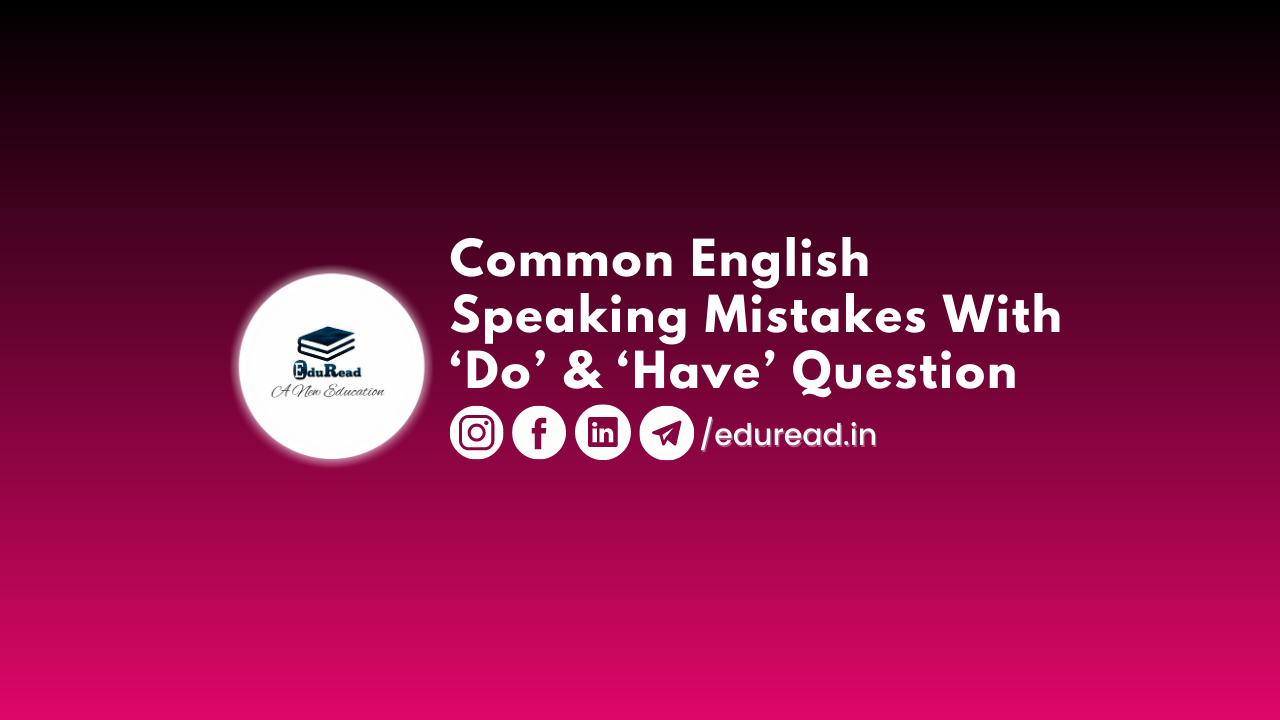Are you struggling with English grammar, particularly when it comes to using ‘do’ and ‘have’ in questions? Don’t worry, you’re not alone. Many English learners find these two verbs confusing, leading to common mistakes in their spoken English. In this blog post, we’ll explore the common errors made with ‘do’ and ‘have’ questions and provide strategies to overcome them.
Understanding ‘Do’ Questions
‘Do’ questions are used to ask about general actions, activities, or routines. However, learners often misuse ‘do’ by using it incorrectly or omitting it altogether. Here are some common mistakes and how to avoid them:
- Using ‘do’ with main verbs: Incorrect: “What were you on the weekend?” Correct: “What do you do on the weekend?”
- Omitting ‘do’ in questions: Incorrect: “Where you live?” Correct: “Where do you live?”
- Using ‘do’ in negative questions: Incorrect: “Don’t you like pizza?” Correct: “Do you not like pizza?” or “Don’t you like pizza?”
Navigating ‘Have’ Questions
‘Have’ questions are used to inquire about possession, experiences, or actions related to ownership. However, learners often misuse ‘have’ and struggle with its correct placement in questions. Let’s address some common mistakes:
- Confusing ‘have’ and ‘has’: Incorrect: “She have a cat?” Correct: “Does she have a cat?”
- Misplacing ‘have’ in questions: Incorrect: “What color car you have?” Correct: “What color car do you have?”
- Using ‘have’ for possession without ‘got’: Incorrect: “Do you have a sister?” Correct: “Have you got a sister?” or “Do you have a sister?”
Overcoming Common Mistakes
To improve your accuracy when using ‘do’ and ‘have’ in questions, consider these strategies:
- Study and practice: Familiarize yourself with the correct structures and practice using ‘do’ and ‘have’ questions in various contexts.
- Listen and observe: Pay attention to how native English speakers form questions using ‘do’ and ‘have’ in movies, TV shows, or conversations.
- Seek feedback: Ask native speakers or language teachers to review and correct your question formations, helping you identify and rectify mistakes.
Practice Exercises
To reinforce your learning, here are some practice exercises to improve your skills in forming ‘do’ and ‘have’ questions correctly:
Exercise 1: Rewrite the following sentences as questions using ‘do’ or ‘does’:
- They live in New York.
- She plays the piano.
- I watch movies on weekends.
Exercise 2: Rewrite the following sentences as questions using ‘have’ or ‘has’:
- He owns a fancy car.
- They experienced a great adventure.
- She drinks coffee every morning.
Conclusion
Mastering the correct usage of ‘do’ and ‘have’ in questions can significantly enhance your English speaking skills. By avoiding common mistakes and practicing diligently, you’ll gain confidence and communicate more effectively. Remember to be patient with yourself and seek opportunities to engage in English conversations to reinforce your learning. With time and practice, you’ll overcome these challenges and excel in your English fluency.
Follow Us for more such content to improve your speaking skills:
To know more, check out here: https://eduread.in/ways-to-say-good-luck-speak-new-york/
And visit us for more.
